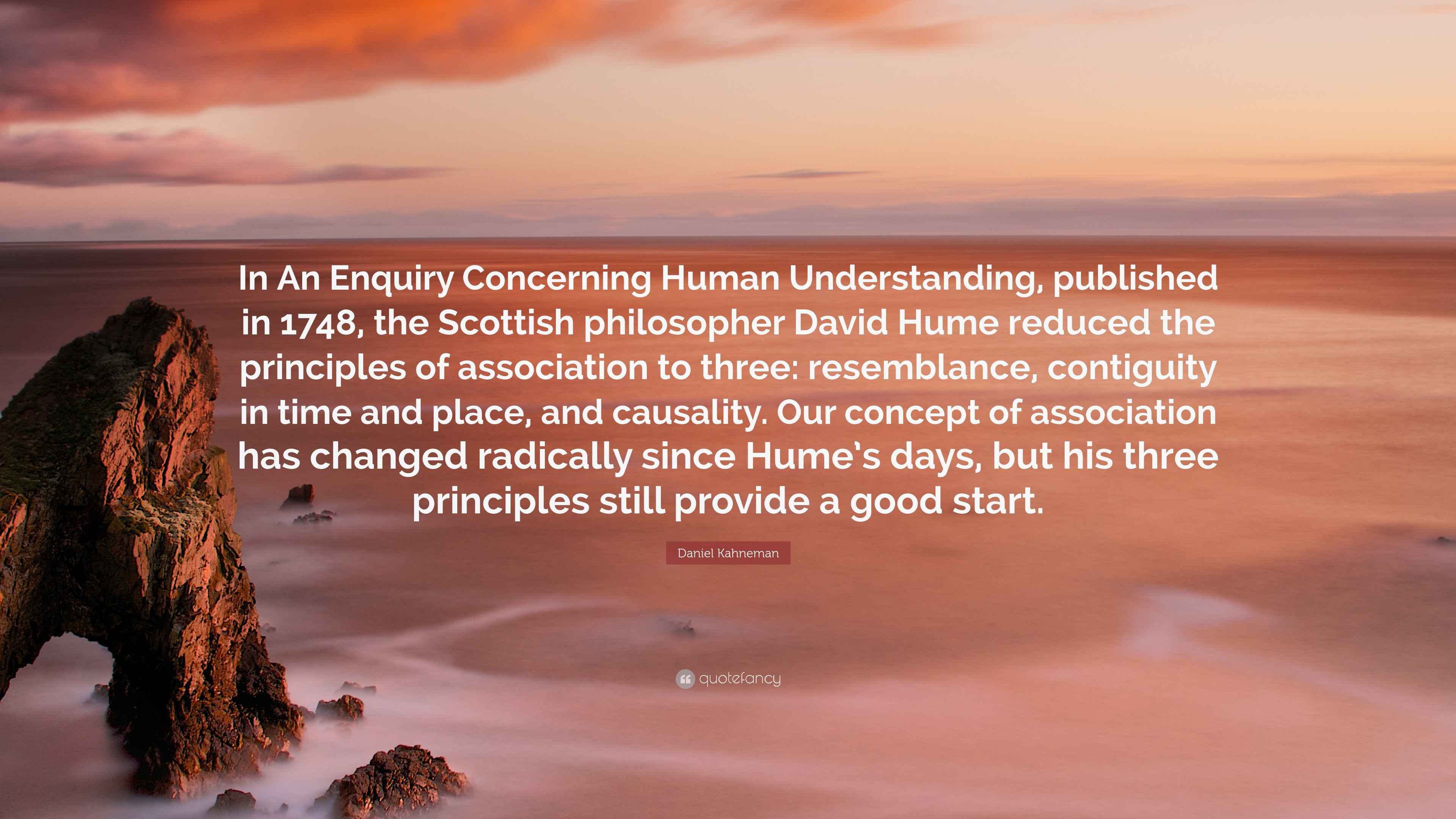

In particular, Hume concludes that we have no Perception and cognition, lessons that contemporary philosophers are not so impressed by. Of his point is that Hume draws other lessons from the same account of Philosophers wouldn’t buy this story about our perceptual and cognitiveįaculties, it’s hard to see why they remain impressed by the conclusions about This subjective expectation onto the world.īut we have, Hume claims, no reason to think it really corresponds to On the occasion of the former, and we project Sort are constantly conjoined in our experience with impressions of the latter

We just find that impressions of the former Hence we have no idea of such a force or causal power. Power or force by which the first generates Visual experiences of a round black patch) that we take to be the motion of anĨ ball. Whitish patch, say) that we take to be the motion of a cue ball, followed byĪnother set of impressions (a “knocking” sound followed by a succession of We have a set of impressions (a succession of visual experiences of a round Yet that model underlies Hume’s doubts aboutĬausation as an objective feature of reality. Few philosophers today would endorse such aĬrude model of perceptual experience or concept formation. Olfactory, or gustatory sort, along with memories of emotions and the like. Impressions – essentially mental imagery of a visual, auditory, tactile, “Ideas” in turn, as he uses the term, are faint copies of such Of perception as the passive reception of “impressions” such as a sensation ofĬolor, a sharp pain, or a twinge of fear. Support is a reverential bow in the direction of Hume, but with noĪcknowledgment of the restrictive theory of perception that Hume's own denial By now the view is hardly ever argued for.


In any case, it certainly is still widelyīelieved that we never perceive causal connections between things. Intelligibility of the idea of such a connection. A different but related possibility is thatĬausal dependence is thought to be unperceivable because of the doubtful Perceive instances of causal connection or dependence. Things in the independent world remains problematic or metaphysically They appear to hold that we can perceive and thereby have aĪnd other enduring things and states of affairs even though the idea of causal dependence between such Hume on the status of causation without accepting such a severely restricted conception of the scope of Philosophers of more recent times remain in a broad sense followers of The earth long after the death of the body. They are like a ghost that continues to walk Is very little if any “punch” left to Hume’s philosophy once this error isīe taken seriously long after such underpinnings have collapsed. Philosophical error, it has been known to be a crude error since at least PlatoĪnd Aristotle, and it has been known to contemporary philosophers to be a crude Treatment of causality, his subjectivism about value, and so forth – are widelyĮven those philosophers who don’t agree with these conclusions tend toĪny of these philosophers would accept the basic philosophical presuppositionsįor example (and as I often complain ), Hume conflates concepts with Hume’s most famous conclusions – his skepticism about induction, his Stroud do it, in a way that is far more genteel than I’m inclined to. Than beat up on him (as I have done recently ), let’s beat up on them for a


 0 kommentar(er)
0 kommentar(er)
